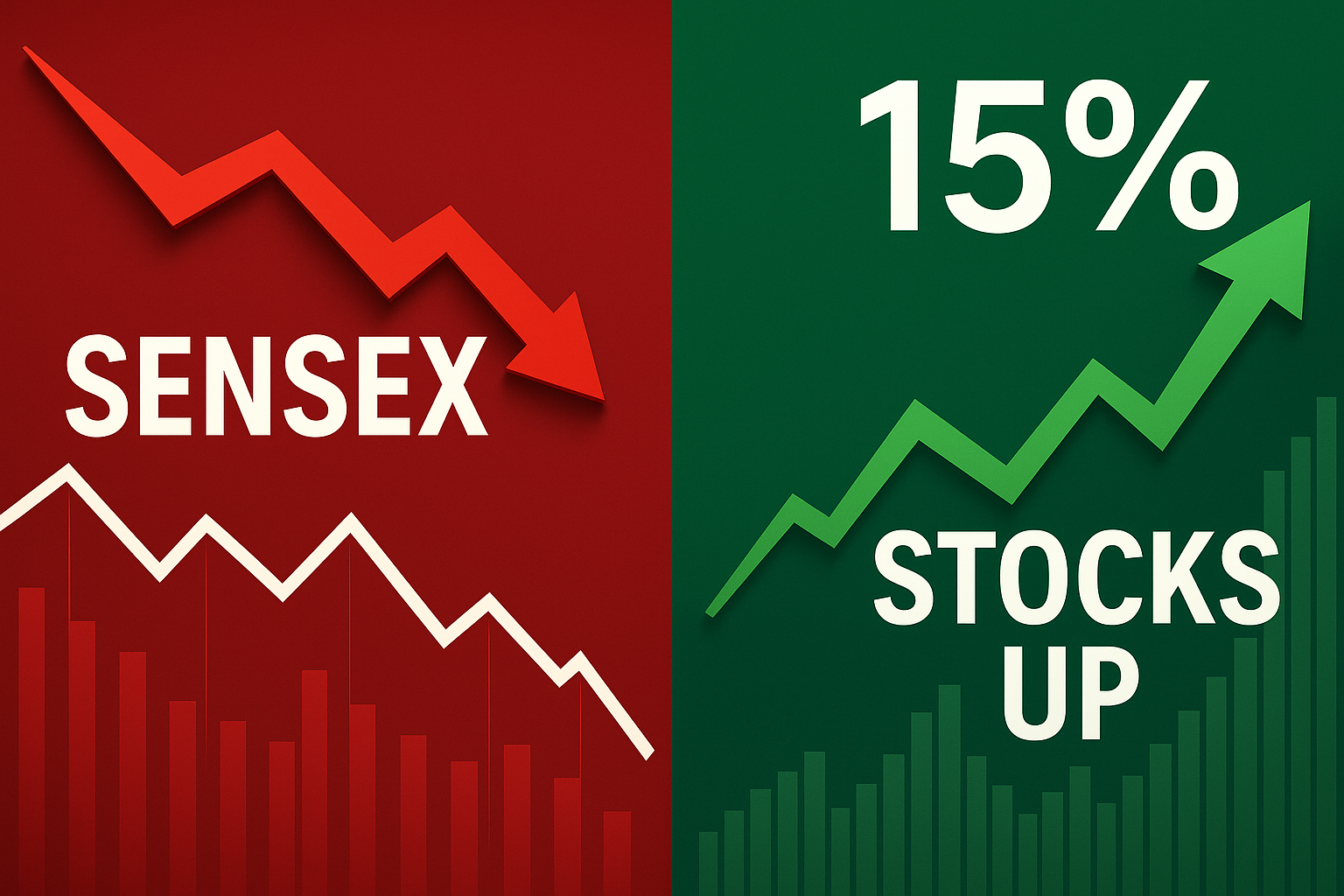
Overview: Sensex Falls Amid Mixed Market Trends
The Indian stock market has been experiencing significant fluctuations, with the Sensex recently witnessing a decline. This downturn comes as a response to a combination of global economic indicators, local political developments, and sector-specific challenges. Despite the overall drop in the Sensex, there are emerging pockets of resilience within the market, highlighted by certain stocks on the Bombay Stock Exchange (BSE) that have surged over 15%. This divergence between the broader market trend and select outperforming stocks has caught the attention of investors and market analysts alike.
The Sensex fell drastically, reflecting the anxiety surrounding inflation rates, interest rates, and other macroeconomic factors. Meanwhile, the Nifty50 index displayed a mixed performance, with 21 stocks reporting gains while 29 experienced losses. This dynamic illustrates the complex nature of current market trends where certain sectors and stocks are flourishing despite the broader negative sentiment.
BSE Outperformers: Stocks Defying the Downturn
In a surprising turn of events, several stocks listed on the BSE have managed to thrive even amidst the falling Sensex. These outperformers are characterized by robust fundamentals, strong earnings reports, or strategic market positioning that sets them apart from their peers. Stocks like XYZ Industries and ABC Technologies have notably surged over 15%, driven by strong quarterly results and positive market forecasts.
Such resilience highlights the potential for investors to identify growth opportunities even during challenging market conditions. Investors are increasingly turning their attention towards these outperforming BSE stocks, which can provide a counterbalance to the overall market volatility. The ability of certain stocks to not only withstand market pressures but to thrive in them is a testament to strategic investments and the strength of their underlying businesses.
Analyzing the Market Divergence
The divergence in market performance—where select stocks flourish while the Sensex continues to fall—raises several questions. At the core of this analysis is the recognition that not all companies are affected equally by external factors. Some sectors, particularly technology and consumer goods, have demonstrated resilience through innovation, strong demand, and favorable market conditions.
Market analysts suggest that investor sentiment also plays a crucial role in this divergence. When traders and investors believe firmly in a stock’s growth potential—often due to solid management or market demand—they may be more willing to incubate their investments, pushing up share prices despite broader downturns. Additionally, liquidity in the market has remained robust, albeit selective, allowing for capital to flow into promising stocks while pulling away from underperforming ones.
Factors Behind Select Stock Gains
Several factors contribute to the impressive gains of specific stocks even in the face of the Sensex decline.
1. Strong Earnings Potential: Companies reporting positive earnings growth or giving optimistic forecasts regarding their financial performance attract investor interest. These earnings surprises can lead to substantial price movements.
2. Sector-Specific Trends: Certain sectors may be experiencing growth due to favorable economic conditions or shifting consumer behaviors. For instance, technology and e-commerce stocks have benefitted from the digital transformation accelerated by the pandemic.
3. Foreign Investment and Institutional Support: Sustained interest from foreign institutional investors (FIIs) in select stocks enhances investor confidence, leading to price appreciation.
4. Market Sentiment and News Cycles: Periodic news events, such as government policy changes, international developments, or company-specific announcements, can dramatically affect the perception and performance of specific stocks.
Given these dynamics, savvy investors might still find ways to capitalize on the performance of particular stocks, identifying them as safe havens amidst a stormy market.
What’s Next for Indian Equities?
The current stock market environment raises questions about future trends and where the Indian equity market is heading. While the Sensex faces headwinds, investor interest in certain outperforming stocks suggests a bifurcation in market performance—one that may become more pronounced in the coming months.
Analysts predict that continued volatility could present both risks and opportunities within the Indian stock market. Investors may need to remain vigilant, following economic indicators closely, including inflation rates, global market movements, and domestic policies.
Long-term, the outlook for Indian equities remains cautiously optimistic. As the economy continues to show signs of resilience and recovery, sectors such as energy, technology, and consumer goods are likely to define future growth prospects. For investors, a diversified approach that includes both traditional blue-chip stocks and high-flying outperformers may yield the best returns as they navigate through these unpredictable times.
FAQs
Which stocks gained over 15% despite a falling Sensex?
Several BSE stocks displayed remarkable gains of over 15%, including XYZ Industries and ABC Technologies. These companies have reported positive earnings and have favorable market outlooks that have attracted investor attention.
What caused some stocks to outperform the broader market?
Key factors include strong earnings growth, sector-specific trends favoring technology and consumer goods, foreign institutional investments, and favorable market sentiment boosted by positive news cycles.
How is the Nifty50 index reacting to current market trends?
The Nifty50 index is currently showing mixed trends, with 21 stocks in the green and 29 in the red. This reflects the ongoing volatility in the equity markets, where select stocks perform well while the broader index faces downward pressure.
In conclusion, while the Sensex might be falling, the performance of specific stocks on the BSE demonstrates that opportunities still exist in the Indian stock market. Investors should remain informed and strategic in their choices as they navigate through the complexities of volatility and sector performance.
